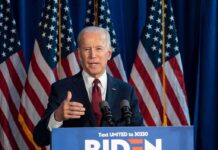
RFK Jr. has purged the entire CDC vaccine advisory committee, appointing eight controversial experts who could drastically reshape America’s vaccination policies and standards.
Key Takeaways
- Robert F. Kennedy Jr. has removed all members of the Advisory Committee on Immunization Practices (ACIP) in a stated effort to restore public trust in vaccine policy
- The new appointees include several prominent COVID-19 policy critics, including Dr. Robert Malone and Martin Kulldorff, who gained notoriety during the pandemic
- Critics fear the new panel lacks strong vaccine expertise and may promote skepticism, while supporters praise the focus on “gold-standard science”
- The overhaul threatens to disrupt upcoming vaccine recommendations as the committee currently lacks a quorum to make decisions
- The dramatic reshaping of ACIP signals a major shift in federal vaccine policy under President Trump’s administration
Complete Overhaul of CDC’s Vaccine Advisory Committee
Health and Human Services Secretary Robert F. Kennedy Jr. has removed all members of the Advisory Committee on Immunization Practices (ACIP), the influential panel that shapes America’s vaccination recommendations. This sweeping action represents one of Kennedy’s most significant moves since joining President Trump’s cabinet. The ACIP plays a crucial role in determining which vaccines doctors recommend, what insurance companies cover, and ultimately shapes public health guidance for millions of Americans. Kennedy defended the decision as necessary to rebuild public confidence in federal vaccine policy after what he described as years of eroding trust.
“HHS will put the restoration of public trust above any pro- or antivaccine agenda,” stated Robert F. Kennedy Jr., Secretary of Health and Human Services.
Kennedy claims the panel overhaul was necessary due to conflicts of interest among previous members and last-minute appointees made by the Biden administration. However, HHS agencies, including ACIP, have historically operated under strict policies regarding financial conflicts of interest, with no recent documented breaches of these protocols. Critics view the move as potentially undermining decades of scientific consensus on vaccination safety and efficacy, while supporters see it as a necessary correction to address legitimate concerns about rushed vaccine recommendations during the COVID-19 pandemic.
The New ACIP Members: Pandemic Skeptics and Critics
Kennedy has appointed eight new members to ACIP, many of whom gained prominence during the COVID-19 pandemic by criticizing government policies and mRNA vaccines. The appointees include Dr. Joseph R. Hibbeln, Martin Kulldorff, Retsef Levi, Dr. Robert Malone, Dr. Cody Meissner, Dr. Michael A. Ross, Dr. James Pagano, and Vicky Pebsworth. Several of these individuals have been vocal critics of pandemic response measures, with credentials and positions that have placed them at odds with mainstream medical consensus during the COVID-19 crisis.
“All of these individuals are committed to evidence-based medicine, gold-standard science, and common sense. They have each committed to demanding definitive safety and efficacy data before making any new vaccine recommendations,” stated Secretary RFK Jr.
The new appointees represent a significant departure from previous ACIP compositions. Martin Kulldorff co-authored the Great Barrington Declaration, which questioned lockdowns and other public health measures. Dr. Robert Malone, known for early work in mRNA research, has made controversial claims against COVID-19 vaccines. Dr. Retsef Levi has called for cessation of COVID mRNA vaccination programs, citing alleged harm. Vicky Pebsworth is associated with the National Vaccine Information Center, an organization that emphasizes vaccine risks. These selections signal a clear shift toward greater skepticism of established vaccine protocols.
Implications for Public Health and Vaccine Policy
The immediate impact of Kennedy’s decision is already apparent, as the ACIP currently lacks the quorum needed to function properly ahead of its scheduled June 25-27 meeting. This disruption threatens to delay crucial vaccine recommendations and potentially create uncertainty for healthcare providers and patients across the country. The panel’s recommendations influence everything from childhood immunization schedules to seasonal flu vaccine guidance, making its proper functioning essential to public health infrastructure nationwide.
“This is a huge win for the medical freedom movement, they did everything by the book to put together this excellent slate of appointees,” said David Mansdoerfer, a former Trump administration HHS official.
Critics of the overhaul fear potential long-term consequences for vaccination rates and public health outcomes. The resignation of Lakshmi Panagiotakopoulos, a former ACIP co-leader, highlights internal dissent and concerns over how these changes might affect vulnerable populations. Senate Health Committee Chair Bill Cassidy has expressed reservations about the decision and pledged to maintain communication with Kennedy to ensure the committee includes appropriate vaccine expertise. The tensions between prioritizing public trust through skepticism versus maintaining established scientific protocols now lies at the heart of America’s vaccine policy debate.
“Kennedy did not pick people with strong, current expertise in vaccines. It tells me that Kennedy is setting up a committee that would be skeptical of vaccines, and possibly willing to implement an anti-vaccine agenda,” warned Dorit Reiss, a vaccine law expert at the University of California Law San Francisco.


 News Editor
News Editor




























